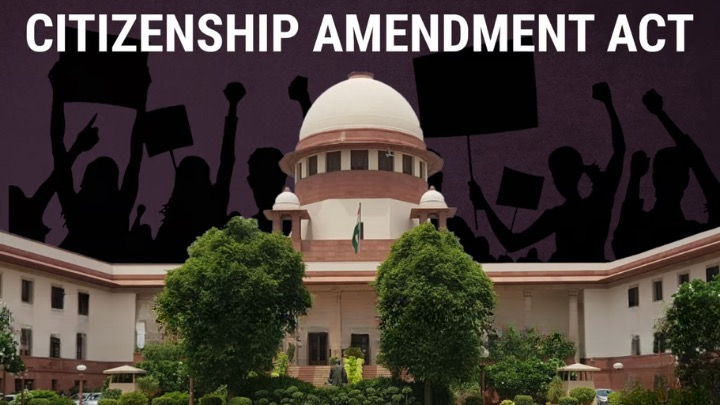Govt ready with rules for CAA, set to be notified before Lok Sabha polls announcement (Indian Express)

- 03 Jan 2024
Why is it in the News?
The rules for the Citizenship (Amendment) Act of 2019 are ready with the central government and will be notified "much before" the announcement of the Lok Sabha elections.
What is the Citizenship (Amendment) Act (CAA) 2019?
- The Citizenship (Amendment) Act of 2019 proposes amendments to the definition of illegal immigrants, specifically benefiting Hindu, Sikh, Parsi, Buddhist, Jain, and Christian immigrants (excluding Muslims) from Pakistan, Afghanistan, and Bangladesh.
- These individuals, residing in India without documentation, are eligible for expedited Indian citizenship within 5 years (reduced from 11 years).
Key Provisions:
- Cancellation of OCI Registration: The Act empowers the cancellation of Overseas Citizen of India (OCI) registration if the holder violates Citizenship Act provisions or other applicable laws.
Eligibility Criteria:
- Forced Migration: The CAA 2019 applies to those compelled to seek refuge in India due to religious persecution.
- Cut-off Date: Applicants must have entered India on or before December 31, 2014.
- Exceptions: The Act excludes areas under the Constitution's sixth schedule (autonomous tribal regions in Assam, Meghalaya, Tripura, and Mizoram) and states with an inner-line permit regime (Arunachal Pradesh, Nagaland, and Mizoram).
- Implementation Status: Despite lacking notified rules, leading to non-implementation, the government has repeatedly sought extensions for rule formulation.
Rules for the the CAA:
- The authorities have finalized the rules, and the online portal is operational.
- Upon issuing the rules, the authorities can implement the law, granting Indian citizenship to eligible individuals.
- The entire application process will be conducted online, allowing applicants to apply, even using their mobile phones.
- Applicants must declare the year of their entry into India without travel documents, with no requirement for additional documents.
- Requests from applicants who applied after 2014 will be processed according to the new rules.
Factors Contributing to the Delay in CAA Implementation:
- The CAA has encountered robust opposition, particularly in states like Assam and Tripura, leading to significant delays in its implementation.
- Demographic Concerns in Assam: In Assam, concerns have arisen over the perceived demographic impact of the CAA, with fears that it might contradict the 1985 Assam Accord's provisions.
- Assam Accord Violation Perception: The CAA is viewed in Assam as a potential breach of the 1985 Assam Accord, which permits citizenship for migrants arriving between January 1, 1966, and March 25, 1971.
- Nationwide Protest: Protests initially concentrated in the northeast expanded nationwide, contributing to a complex socio-political environment surrounding the CAA.
- Legal Challenges: The Supreme Court is handling petitions, including one from the Indian Union Muslim League, challenging the constitutional validity of the CAA.
- Allegations of Selectivity: Critics argue that the law is discriminatory, excluding persecuted communities like Rohingya, Tibetan Buddhists, and Sri Lankan Tamils, raising concerns about its arbitrary nature.
Counterarguments Responding to CAA Petitions:
- Basis of Classification: The government asserts that the CAA's classification is not based on religion but on addressing "religious discrimination" faced by minorities in neighbouring countries with a state religion.
- Parliamentary Deliberation: Emphasizing over seven decades of deliberation, the government highlights that the Parliament has considered issues related to minorities and enacted the CAA as a targeted amendment.
- Specific Problem Resolution: The CAA is portrayed as a focused amendment designed to address a specific issue prevalent in identified countries, rather than serving as a comprehensive solution for global challenges.
- Limited Legislative Scope: It is clarified that the legislation has a delimited scope, addressing the specific concerns of minorities in certain nations.
- The Indian Parliament is not obligated to address potential persecutions worldwide.
